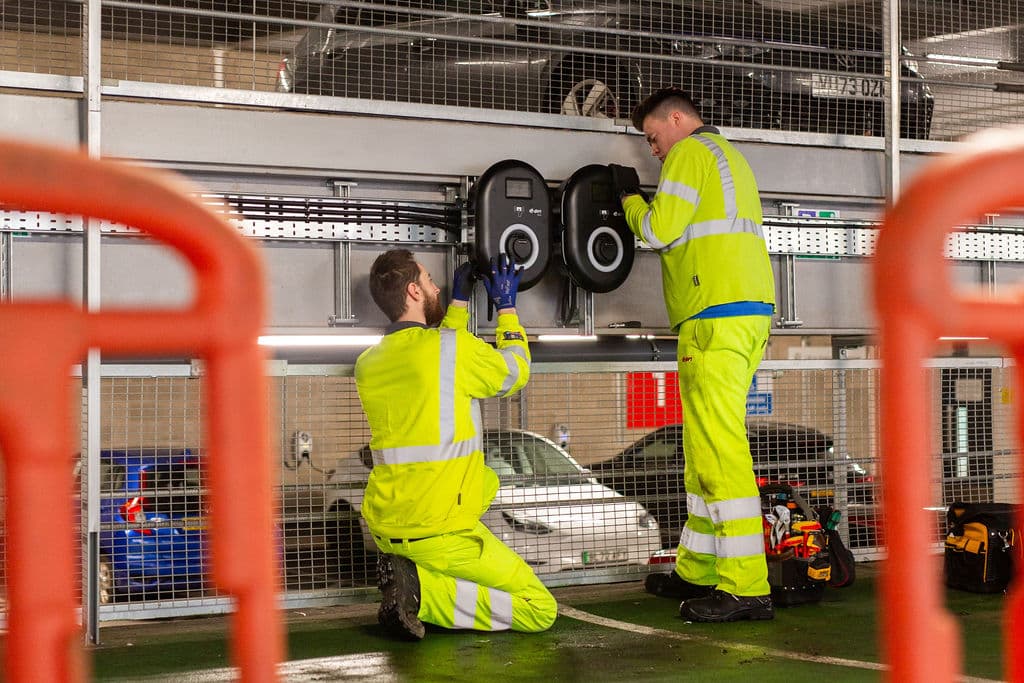A new poll has revealed that nearly three-quarters of Britons believe greener transport options, such as electric buses and expanded cycle lanes, are crucial for creating cleaner and healthier cities. The survey, conducted by energy company E.ON, suggests widespread public support for sustainable urban transport, yet highlights a significant barrier to the transition to electric vehicles (EVs) – the insufficient availability of charging stations, particularly in rural areas.
The poll, which surveyed 1,000 UK adults, found that almost 70% of respondents agreed that investment in greener transport is vital for improving urban environments. However, over half of those surveyed cited the lack of local charging infrastructure as a major challenge in the drive to switch to electric cars. Rural communities, in particular, are feeling the impact, with more than 70% reporting that EV charging stations are either scarce or not expanding to meet demand.
The survey results also suggest that many drivers are reluctant to abandon their cars without more viable alternatives and incentives. Nearly 90% of motorists said they would need a combination of incentives, such as tax breaks or subsidies, along with expanded sustainable transport options, to make the switch to greener alternatives like public transport or car-sharing schemes.
Natalie Robinson, Head of New City Partnerships at E.ON UK, commented on the findings: “This research underscores how much the British public sees the need for dramatic change in transport systems. However, to bring about this transformation, it is vital that transport providers, local authorities, and charging infrastructure developers all work together to ensure that the necessary support is in place.”
Robinson emphasised E.ON’s commitment to expanding EV infrastructure across the UK, aiming to bridge the gap between urban and rural areas. The company is investing in ultra-fast charging hubs and collaborating with local councils to ensure that more drivers, whether in cities or the countryside, have access to the charging facilities they need.
The survey revealed a stark divide in the availability of EV charging stations between urban and rural areas. In urban locations, nearly 20% of people reported satisfactory charging infrastructure, while fewer than 10% of rural residents expressed similar satisfaction. In fact, nearly 72% of rural dwellers said that they were underserved in terms of EV charging provision.
Additionally, a majority of respondents (87%) agreed that to drive the switch to greener transport, motorists need a mix of alternatives and incentives. These could include expanded public transport options such as eco-friendly buses and trains, and more charging points at workplaces, shopping centres, and leisure venues. Suburban residents were particularly vocal in calling for these practical measures to be implemented.
E.ON is playing a key role in addressing these challenges, having recently launched its first ultra-fast public EV charging hub in Wales. The hub features 10 ultra-fast 300kW charging bays, each capable of providing 150 miles of range in just 10 minutes. The company also has plans to expand its charging network further, with new high-powered EV hubs planned for several Scottish cities, including Edinburgh, Dundee, Stirling, and Aberdeen.
Coventry, one of the UK’s most EV-friendly cities, is also leading the way in the push for green transport, with plans to further expand its charging infrastructure to become a model for sustainable urban transport.
As the country works towards greener transport options, the poll underscores the urgent need for investment in charging infrastructure to ensure that the shift to electric vehicles is accessible for all, no matter where they live.

